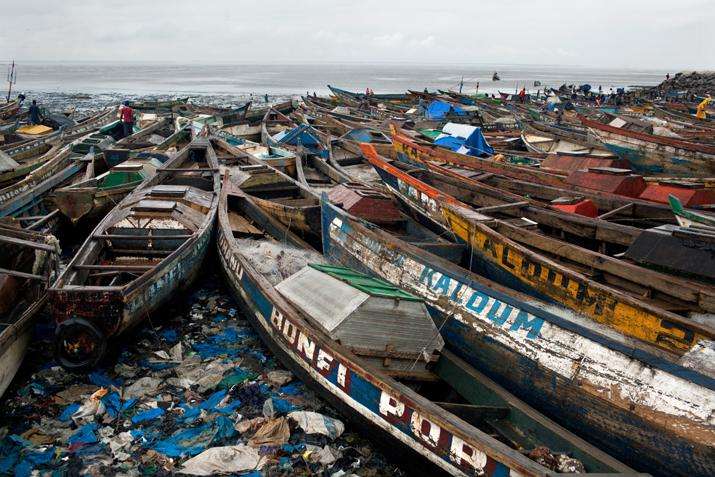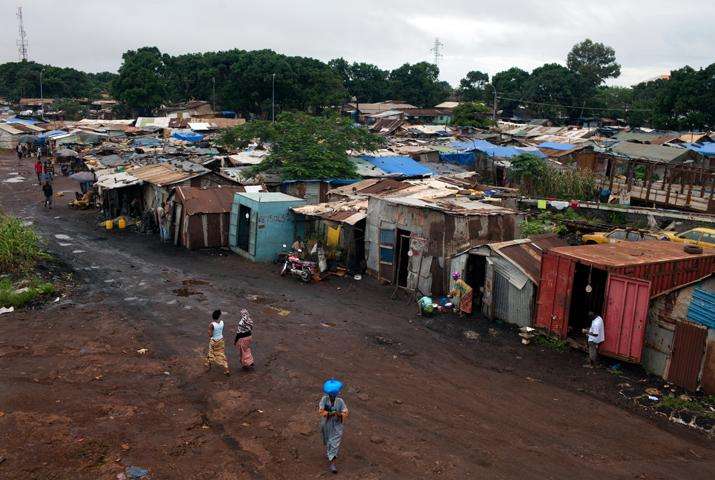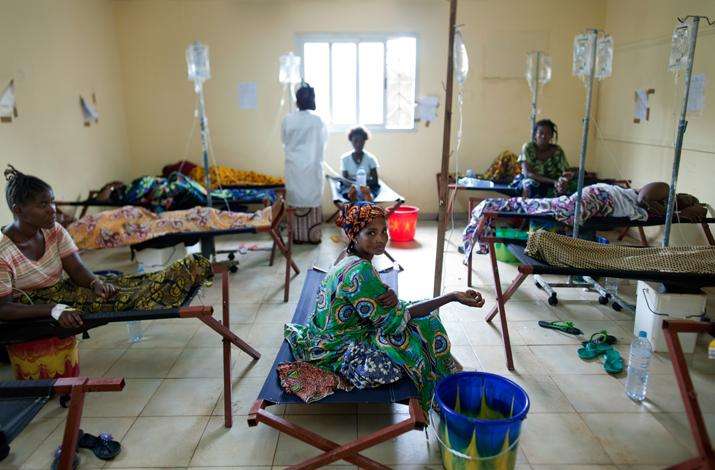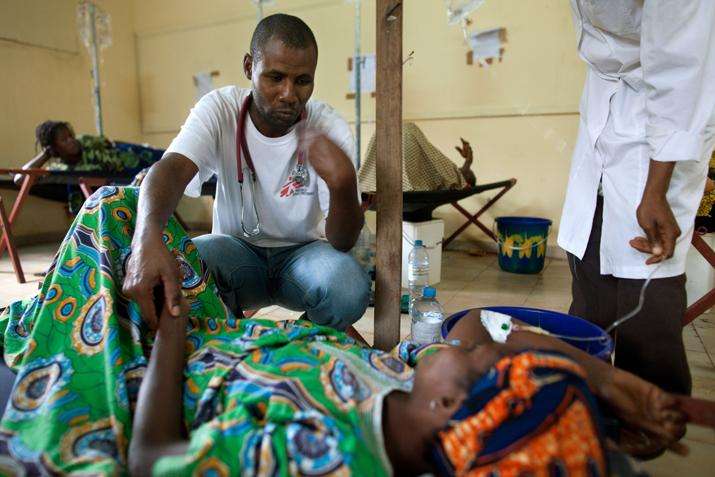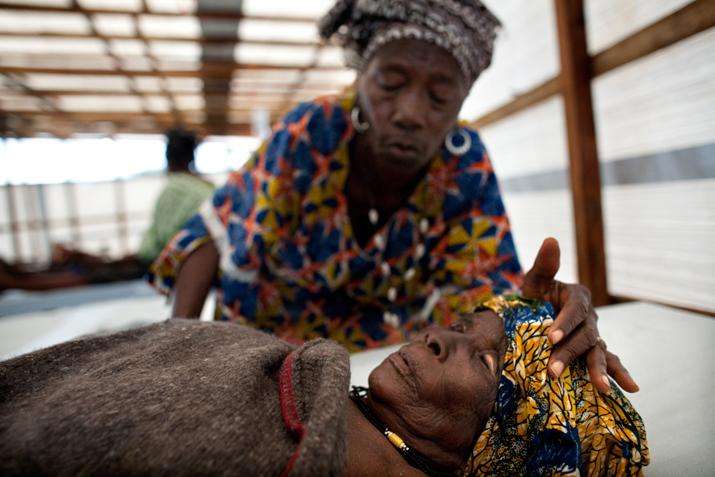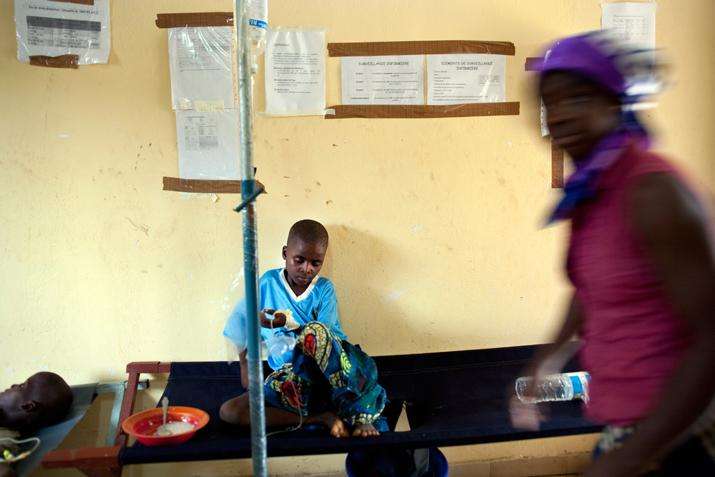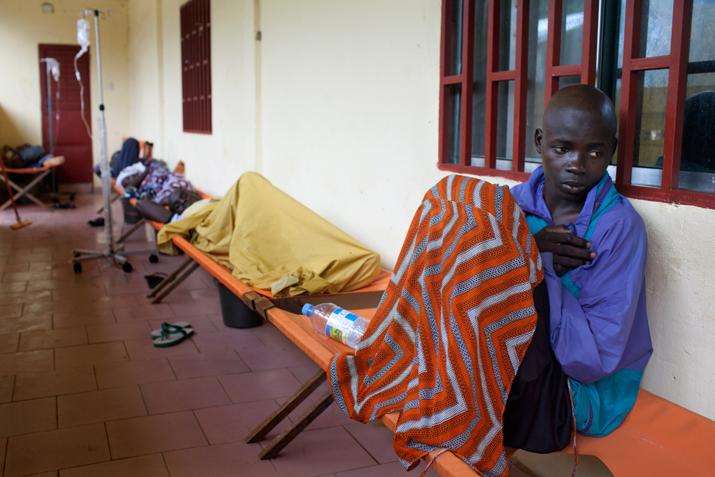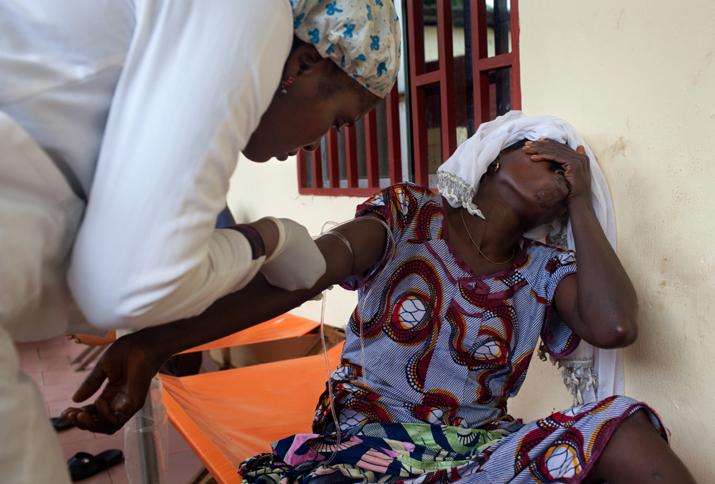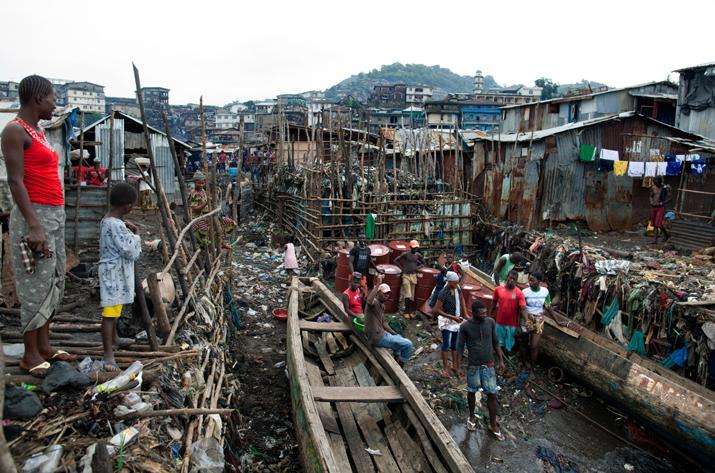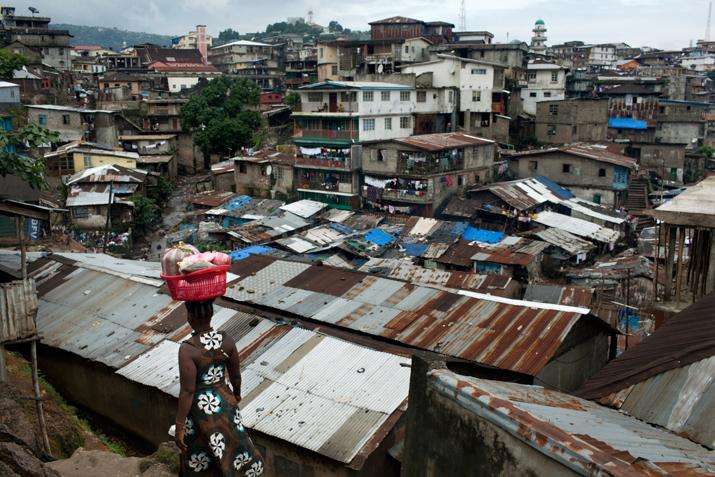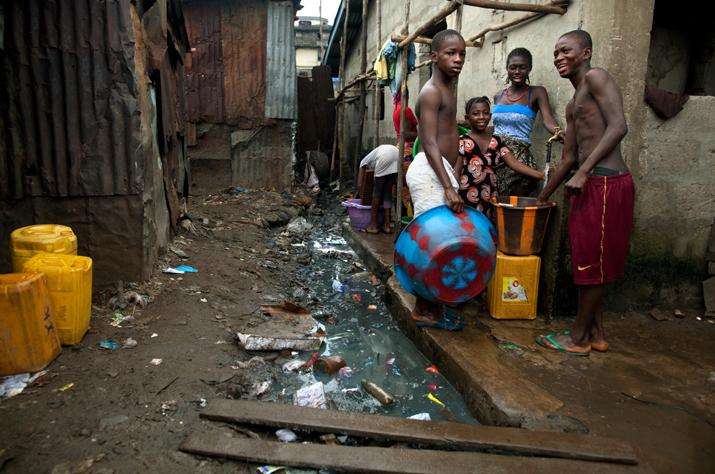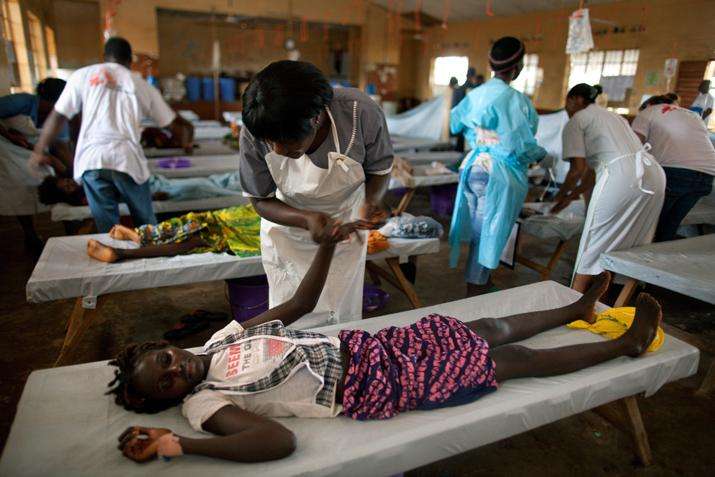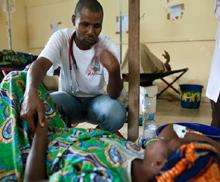MSF is fighting a cholera epidemic along the border between Guinea and Sierra Leone in western Africa.
The onset of the rainy season in western Africa has caused an increase in cholera cases on both sides of the border between Sierra Leone and Guinea. More than 13,000 people have been admitted to hospitals in the cities of Freetown, Sierra Leone, and Conakry, Guinea, since February, when the disease was declared an epidemic. Doctors Without Borders/Médecins Sans Frontières (MSF) currently has more than 800 beds available to treat cholera patients and is opening additional cholera treatment centers and rehydration points in collaboration with local authorities.
All images 2012 © Holly Pickett
MSF has extensive experience dealing with cholera, and treated more than 130,000 cholera patients worldwide in 2011. Between late-April and mid-May 2012, MSF vaccinated 143,000 people against cholera along the coast of Guinea in collaboration with the Guinean Ministry of Health.
